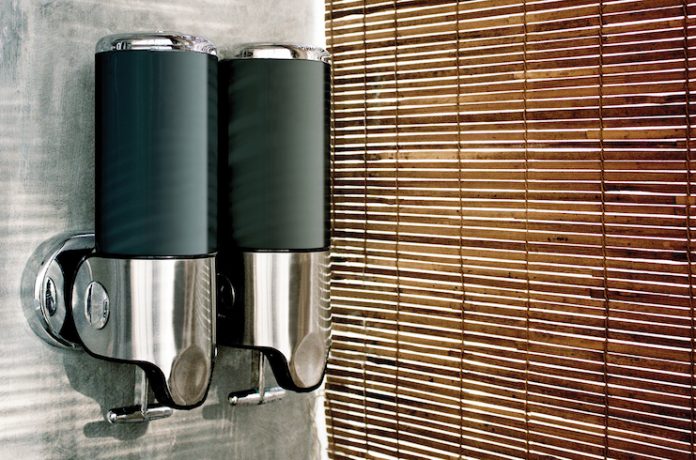
According to Chris Breen, head of partnerships at Public Goods, which creates sustainable products for consumers and—increasingly—hospitality businesses, the key to procuring amenities that are best for the planet is simplicity. Breen shares with LODGING how hoteliers can change what is often a wasteful approach to guest amenities, including by ditching single-use plastic bottles of soap, shampoo, conditioner, and lotion and switching to tamperproof bulk dispensers.
1Eliminating single-use plastics is becoming a necessity.
Reducing plastic waste is not just the right thing to do, says Breen; it’s increasingly becoming a requirement. “The single-use product ban that started in California will become active in 2023, and is already having the trickle-down effect of making owners and guests more aware of the amount of waste they create,” he notes.
2Guests want simpler products.
Breen says when hoteliers are considering switching products, they should take a look at what consumers want today: a simple list of “natural” ingredients, which he explains helps minimize the chance of adverse reactions.
3Rethink the format.
Choosing a new line of amenities is also an opportunity to change the format. Breen recommends buying amenities in bulk so they can be dispensed via refillable tamperproof wall-mounted fixtures. Where bulk amenities aren’t possible, hoteliers can offer products packaged more sustainably, e.g., paper-wrapped toothbrushes and toothpaste tablets.
4Change may require an initial investment.
“Owners need to understand that, in the long run, switching to bulk and doing refills, especially with bath amenities, is good for profits as well as the environment, but there is an upfront investment—mainly in purchasing the currently pricey dispensers that meet the tamperproof requirement to which some owners are subject,” Breen notes.
5Simplifying sourcing has its benefits.
Many hoteliers are accustomed to sourcing amenities from multiple vendors. Breen says vendors that provide a one-stop-shop for products can help owners and operators “focus on running their hotels, not worrying about sourcing the consumables they need.” For instance, Breen’s company aims to offer a full line of affordable hospitality-grade products designed to blend with, not compete with, the surroundings. “We use the simplest brand packaging, so it doesn’t detract from the property design or compromise the guest experience.” He addresses, too, concerns about the supply chain issues that have plagued businesses of all kinds since the onset of the pandemic. For his company’s part, he says, “We realize that going out of stock would be detrimental to the partnerships we’re forming, so we’ve gotten ahead of it by managing lead time, forecasting demand accurately, and working with our suppliers to keep more inventory of the core products on hand so that we can meet both current demand and the growth we expect.”











